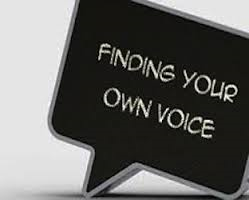The Soul Of Your Book Is Embedded In Your Voice

“Be the Architect of Your Story”
There’s a term in publishing. The word is elusive, coveted, and unique. Well, if you plan on selling any books you better damn hope it’s unique. Voice. The word has slipped across your ears a thousand times, but in writing the word is pivotal. Critical. If crafted, it’s the one word that will get you bee-lined to an editor’s desk. If your voice is fragmented or lost. The manuscript you’ve slaved over for two years falls into the slush pile with the millions of other wanna be novels that didn’t declare a voice. No voice. No contract.
The concept of the writer’s personal voice is essential for any genre, but unmistakably invaluable when writing erotic romance. The reader plays a movie in her/his head and senses the tone of the book according to the writer’s voice. The weaving of a writer’s craft is a direct reflection of how an author relays everything from how the character sips from a glass of wine to how she puts her bra on in the morning. Every word is constructed from our personality, experiences, and nuances all rolled into one.
When writing erotic romance/romance we draw from experience. All of us have had bad, unhealthy relationships. The way we build a story reflects those feelings about the highs and lows of that union. It’s the subconscious spilling out on the pages. The plot is determined by the journey of our life. In erotic romance it is imperative that the reader make an emotional connection with the characters. If they are not feeling the heroine’s angst and the heroes self-torment then they quickly lose the connection with the book. You have to bond with your characters. They have to speak your voice to the reader through them.
When I received my first contract I asked my publisher, “Why me? Why this book?” When I read the email I was floored. She said it was my voice that had struck the editor. My voice? What in the hell did that mean? I dove into research about this voice concept. During this process I discovered that I did in fact have a distinct voice. The development of a voice is two-fold. One, you can’t wa-la have a voice overnight. Your uniqueness develops over time. And two, once you have discovered the motivation behind your style the sky is limitless. Remember. Sell your voice. Sell your book.
Just as Gena Showalter adds humor to her stories, and J.R. Ward adds kick-ass-ed-ness to her books, I add a tone of darkness to my novels. I work off the concept of the sacred and profane. I was a religious study major in college so every book I write has an undercurrent of the sinfully forbidden and quiet redemption of crushed souls. I, at first unknowingly, craft characters that appear to be too broken to be put back together. Somehow by the end of the book they are not perfect, but they gain self-acceptance and see the light leading them to happiness. I push the boundaries of what is acceptable, both for the reader and the publisher.
In See Me there is a scene regarding rape and attempted murder of the heroine. In Gilded Lily, set in the heart of Louisiana, the shacks on the property have a horrific history. My next two projects push those boundaries again delving into suicide, mental illness, infidelity, drug use, and prostitution. I must add that peppered through these dark threads are points of humor. I honestly have no idea where these little nuggets originate, but they just seem to appear. Again, the subconscious playing its part.
A productive task when learning the style of your voice is to write down certain events in your life that have affected you. Correlate those events to a feeling you experienced. Do you see a thread? Is there a common theme of how you reacted, dealt with those situations? Now, brainstorm a list of story concepts. Same thing goes. How would these scenarios play out in reference to how you handled the real life experiences? Do you use humor as a coping mechanism? Are you quick to get angry? Do you problem solve quickly? Do you laugh at your own mistakes? These emotions are embedded in who you are and can be siphoned into the natural dialogue and essence of your character’s personalities.
Read several books by your favorite authors. Those books are on your keeper shelf because you bonded with the author’s voice. You somehow connected with the tone of the book. Let’s be honest here. How many ways can a vampire find his human, a wolf find his mate, or a captain rescue his woman from the hands of a pirate? This isn’t rocket science when looking at sweeping romantic themes. So, why do you choose Lisa Kleypas’s over Charlotte Featherstone or Cara Bristol over Cherise Sinclair? You connect with the way the writer speaks to you. Think of the voice as the soul of the story. While we can construct plot, arcs, appearance of the characters, the nature of the story is buried somewhere deep in yourself.
The most emotional and gripping storytellers can’t tell you where exactly their style originated. They can tell you they wrote a scene because it was funny to them. It was heart breaking to them. Or it was scary as hell to them. The essence of those feelings make the exciting world of the writer’s voice.
So remember, when you’re preparing a manual for submission, are you in this story? Are your feelings hidden in the pages? If not, rethink the tone of the book and study yourself to make the pages shine.
If nothing else, take this piece of advice and tuck it in your thoughts when you sit in front of your next manuscript. No voice. No contract.
Pauline Allen's Blog
- Pauline Allen's profile
- 4 followers



